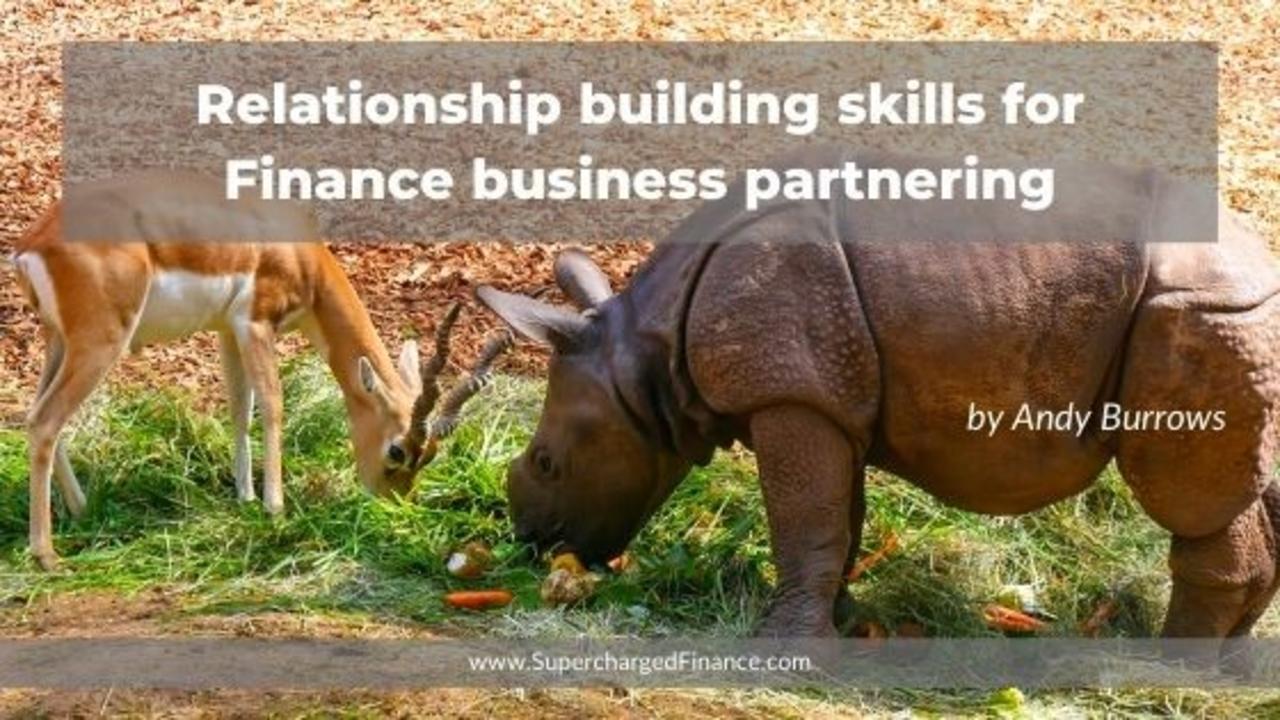To be a happy and effective CFO, take care of yourself!

By Andy Burrows
Probably the most important thing to recognise as you develop in your career (and in your life) is that continued progress takes continued effort.
It’s not one-dimensional, either. Many people think – and I’m applying this to Finance people, but it can equally apply to anyone – that continued development is just a case of learning more stuff. We learn accounting, pass accounting exams, and then we progress in our careers by learning more stuff about accounting. Wrong!
Or, worse, we believe that once we’ve got the qualification then it’s just a case of accumulating years and automatically going on up the ladder. Nope! It doesn’t happen like that!
No, to be “the best version of you” you need to attend to four dimensions. And I’ll come on to those in a minute.
And the other element that is important in personal and career development is intentionality. Making effort, even if balanced in the four dimensions, will get you so far. But without intention – in other words, ...
Everyone's a winner with good Finance business partnering

By Andy Burrows
We’re accustomed, I think, to talking about a “Win/Win situation” as some scenario where everyone involved in a deal ends up happy with what they got out of it.
I haven’t got time to justify (and shouldn’t need to anyway) why “Win/Win” is the best outcome to aim for in any relational situation.
But one thing is certain. You don’t get Win/Win situations without having a Win/Win mindset.
And when we think of what Finance business partners, CFOs and Finance leaders should be aiming at, it must involve situations where everyone ends as a winner, certainly where the business is concerned.
For instance, as an example scenario, sales managers might feel they have gained some great insight from Finance that will enable them to convert more leads, whilst in the same interaction the Finance manager feels they’ve got sales managers to better manage risk.
These are the kind of interactions we in Finance want with our non-Finance colleagues. We don’t just want our processes an...
Great CFOs listen without prejudice

By Andy Burrows
Communication skills, from lots of viewpoints, are not only something that CFOs benefit from. They’re skills for life, and skills for leadership.
That’s the same with any of the “personal effectiveness” skills I’ve written about in my previous few articles. I’ve directed them towards Finance business partners and CFOs, because those are the people who I hang around with most, professionally.
But, in reality, when we talk about “gravitas” or “maturity”, or even “credibility” or “presence” – i.e. the kinds of things that make people listen to you and take you seriously as an adult, rather than a young upstart, all seem to come back to some version of the few things I’m describing as “personal effectiveness”.
So, let’s have a think about communication skills.
Four types of communication
And let’s narrow it down further. There are four types of communication: reading, writing, speaking and listening.
Reading, writing and speaking are abilities and skills that we take...
Relationship building skills for Finance business partnering

By Andy Burrows
Today, I want to talk about relationship-building skills as a Finance business partner. And I want you to come away with tangible ideas as to how you can improve the way you build relationships.
If you’ve followed this loose series from the beginning, where I pointed out that Finance business partner is the new best route to a CFO role, you’ll know that I mapped out the three skills areas that are common throughout the continuum from Finance business partner to CFO.
And what I’ve done then is to focus in on one really important area of behavioural skills that I believe is the key to all the rest – “personal effectiveness”. And I’ve spent the last three articles expanding on the foundations.
And you may have found it quite weird that I started with skills that are very much individual personal skills. I mean, Finance business partnering is fundamentally all about dealing with other people. And so, you might expect that I’d be focusing on interpersonal skills, like in...
The best Finance leaders choose important over urgent

By Andy Burrows
I’m continuing a series where I’m trying to show the power of some key ‘soft’ skills that Finance business partners should learn, and CFOs should have.
Today, I hope to show you how to make time to focus on what’s important. This is not simply prioritisation. And whilst you may feel that you’ve heard most of it before, I’m going to finish up by showing you why your prioritisation is probably not working in your daily organisation.
What I’ve said so far is that the core of the behavioural skills you need are all about “personal effectiveness”. If you can’t lead yourself personally, how can you lead or influence others as a Finance business partner or CFO?
There is a real difference between average Finance business partners and the high performing, highly effective Finance business partners and CFOs.
Average Finance business partners continually complain about not having time to do business partnering because they’ve got too much number crunching to do. On the other ...
Setting the destination and direction – a big CFO skill

By Andy Burrows
I’d like you come away from this article knowing how to get a clearer or renewed sense of direction.
Not only that, but I hope that you will have learnt some insights into how you can assess and define the direction you want to go in both your life and work.
Clearly, I write to Finance people, and I’m addressing this article to those who are somewhere on the continuum between Finance business partner and CFO or who want to embark on that journey. However, I’m going to be talking about principles that can be used in pretty much any walk of life or work.
The important context
This is the fourth article in a series. The first two establish the context.
So, I started by pointing out that Finance Business Partner is the new best route to a CFO role. In that article I was establishing the need to better define and support one of the most important development pathways post-accountancy.
Next, I outlined from recent literature and my own research and experience the three...
Finance leadership and influence starts with this one simple thing

By Andy Burrows
What you are reading, whether you realise it now or not, could lead to a turning point in your career. And I’m confident that I’m not overstating the case.
I count this as one of my most important articles to date, because what I want to talk about is something that I learnt that revolutionised my thinking about 15 years ago.
I hope that I manage to get this across clearly to you, because the things I’m going to talk about can:
- Be a foundation for growth in your career;
- Start to give you the confidence to do bigger things and make quicker progress;
- Give you the ability to build new and more productive habits.
So, I hope that I manage to spark something important for you here in this short article in the same way that someone did for me during a 3-day leadership programme 15 years ago.
Are you stuck as a Finance business partner or CFO?
So, let’s first consider where you are now.
Do you find yourself complaining that you can’t do much Finance business partn...
If you want to be a CFO, develop these 3 skills...

By Andy Burrows
There are three areas of skills you need to develop if you want to be a good Chief Financial Officer or Finance business partner – business acumen, technical skills and behavioural skills.
And my intention is to unpack these three areas a little bit, so that you can get to grips with planning your development journey more effectively.
In another article I shared my belief that Finance business partner is the new best route to a CFO role. That is to say, core CFO skills are Finance business partnering skills. And well-developed Finance business partnering skills are what you need to be a CFO.
(To be clear, I’m not intending to imply that Finance business partners can progress to CFO level without some training and experience in accounting, reporting and control – sorry if I’ve ever given that impression.)
That’s why I’m talking about the two together, and why I believe that if your ambition is to be a CFO, you ought to be thinking about the same areas of skill that Finance bu...
Why Finance Business Partner is the new best route to a CFO role

By Andy Burrows
This will not be news to some of you, but taking a route through Finance business partnering is now the best way to achieve your ambition of getting into a CFO role.
It used to be the case that financial control and reporting was the established path to the Chief Financial Officer’s chair. A solid Financial Controller was seen as not only the CFO’s right hand person, but the CFO’s natural successor.
This, I believe, is not the case any more.
And the reason for writing an article about this is that it helps in guiding your development plans and career plans. At its most basic level that equates to thinking about the job moves you choose, and the courses you choose to take, after completing your accountancy qualification.
But, what’s changed to give rise to these changes in career paths?
The CFO is now more strategic
Firstly, the CFO role has become more about strategic partnering with the CEO and the Board, to maximise the performance of the business. I’ve pointed...




